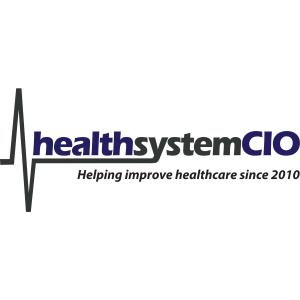healthsystemCIO.com

Q&A with CIO Aaron Miri, Part 3: “Your Team Is Counting on You to Be Vulnerable.”
For the past few years, we’ve seen a significant evolution in the role of the CIO. And although it isn’t always obvious, there are times when it couldn’t be clearer just how much has changed. Case in point: Aaron Miri, who has held the role at Dell Medical School at the University of Texas at Austin for the past two years. During a recent interview about his team’s efforts in response to Covid, he expressed the same passion while discussing the human aspect of leadership as he did while talking about the groundbreaking 3D-printing face shield imitative. When it comes to managing people, Miri believes the need to “tough it out and soldier on” can hinder relationships, and that during difficult times, it’s important to “be vulnerable” and “talk to your team in a way they understand.” He also talks about how the innovative culture at UT Health Austin has enabled his team to flourish, their strategy when it comes to contact tracing, the enormous potential telemedicine offers in terms of health equity, and why he feels like two years has “flown by.” LISTEN HERE USING THE PLAYER BELOW OR SUBSCRIBE THROUGH YOUR FAVORITE PODCASTING SERVICE. Key Takeaways: * It’s not just about convenience; telemedicine can help improve health equity by removing “a lot the stigma and barriers” that prevent individuals from seeking care. * Although the instinct for many leaders is to maintain a “tough” exterior, what’s important during challenging times is to demonstrate vulnerability and be able to “talk to you team in a way they understand.” * For people who are disconnected from others, the effects of Covid-19 are magnified, which makes it even more important to reach out and check in on your team. * Leaders can’t underestimate the value of recognizing hard work, particularly during a crisis. * Local and state officials can offer much-needed assistance – but only if they’ve made aware of the challenges healthcare organizations are facing. Q&A with Aaron Miri, Part 3 (Click to view Part 1 and Part 2) Gamble: It’s going to be really intriguing to see what unfolds because there are a lot of situations where you to have to be physician present for an appointment, but so many where you don’t. It seems there’s enormous potential to improve the patient experience. Miri: You’re absolutely right. And there’s potential to make sure we reach people who maybe we wouldn’t have been able to reach before. Prior to Covid, there were a lot of reports and responses from people in the Austin area who simply would not present unless they absolutely had to for fear of law enforcement. Telemedicine has mitigated a lot of those concerns because even though you’re not physically in front of somebody, you’re still able to receive care at the right place and the right time. If you look at the whole mantra and the effect of the quadruple aim and making sure the technology stocks align to that, it goes back to health equity — telemedicine removes a lot of the stigma and barriers that unfortunately society placed in the middle of being able to receive care. Physicians and clinicians don’t want to see a patient advance to a level of care like the ICU. They want them to get better, either in surgery or recovery, or even when you present to the ED and then go home...






 Visit Podcast Website
Visit Podcast Website RSS Podcast Feed
RSS Podcast Feed Subscribe
Subscribe
 Add to MyCast
Add to MyCast